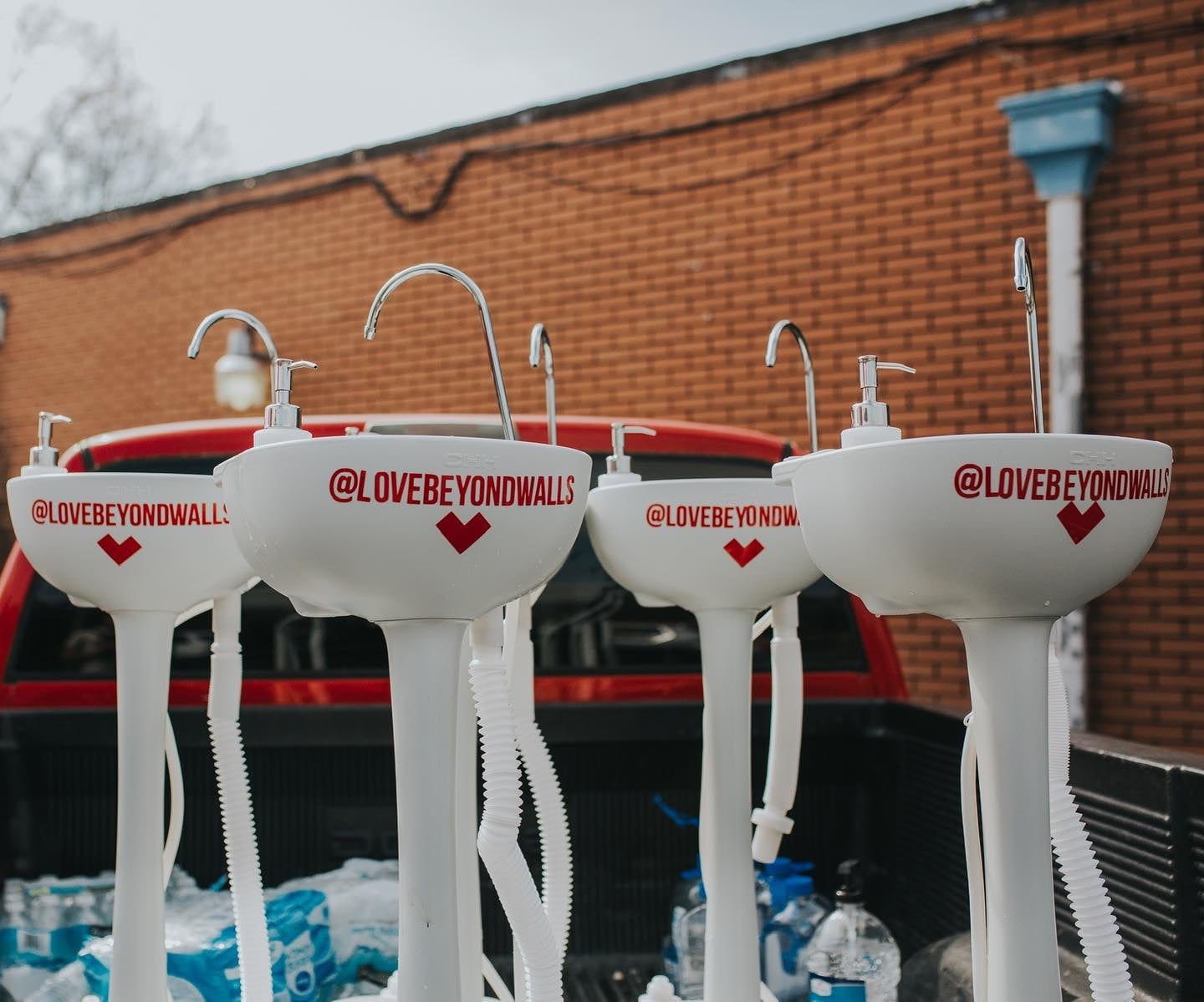In the United States, more than 550,000 people were social distancing before the term was introduced to our daily lexicon. Roughly the same number found an issue with finding personal hygiene products before they began flying off the shelf, finding shelter from the elements of the outdoors, who worried if they’d be able to wash their hands, their bodies to distance themselves from diseases.
They are the hundreds of thousands who spend their lives on the outskirts of society, often not by choice, but because they don’t have a dedicated place to lay their heads. They are the “invisible people” of the COVID-19 pandemic. The ones who Atlanta-based community activist and author Terence Lester helps on a daily basis through his Love Beyond Walls organization.
“Our goal is just to affirm the dignity of people experiencing homelessness and poverty,” Lester tells ESSENCE about his six-year-old nonprofit by phone. “First off, by providing a voice and visibility.” With help from Cecilia Lester, his partner in life and community organizing, as well as a dynamic group of individuals dedicated to the cause, Love Beyond Walls addresses the concerns of those whose fears and anxieties are often overlooked. When the coronavirus started spreading to nearly every corner of the nation, that meant finding a way for the homeless people in Lester’s community to wash their hands.
![Imagine All The [Invisible] People](https://www.essence.com/wp-content/uploads/2020/04/81557786_2932898840080595_4091271896392269824_o.jpg)
Lester shares that as the rest of the world was thinking about sanitizing everything to avert a virus, he was thinking about an entire community of people who wouldn’t be able to adhere to any of the safe practices recommended by the World Health Organization (WHO) or the Centers for Disease Control. While leadership was making suggestions for the good of the public health, he was disappointed that it wasn’t also providing the tools for the parts of the community that don’t have access to the resources to perform those behaviors. “And so that’s kind of how that idea was born,” Lester reveals of a new initiative launched in late March to provide a solution to that problem, “wanting to figure out an innovative way to transport soap and water, which is a basic human right, to a population of people who would be without these resources.”
In the last six years, Love Beyond Walls has reunited homeless individuals with family members; offered grooming and support services, showers and access to food and technology; given them access to identification; helped them find jobs; and partnered with rooming houses to help them find shelter. In all, Lester says the team has gotten a little over 300 people off the streets, and it has done so by also mobilizing volunteers such as nurses and partnering with people like WellCare to help educate people about insurance and medical bills. But the coronavirus provided a unique challenge, one that was unprecedented for Lester, as much as it was the rest of the world.
![Imagine All The [Invisible] People](https://www.essence.com/wp-content/uploads/2020/04/69835926_10217767847179451_6821135380104871936_n.jpg)
A few weeks ago, the community advocate was inspired to start a new initiative dubbed Love Sinks In. The husband and father says he was really moved by one story in particular. “A guy named Dimitri kept saying that he was fearful that he would contract the coronavirus because he didn’t have any place to wash his hands,” Lester expounds. “And that started to make me think about the lack of access to running water, because I knew libraries would be closed. Sometimes people experiencing homelessness use libraries for daytime shelter, to access the Internet or local information. Public spaces would be shut down, as well as restaurants, so this was going to be a growing need.”
Around the same time, Lester’s friend, Christian hip-hop artist Lecrae, reached out asking about tangible initiatives that the Love Beyond Walls organization was doing during the pandemic. Lester responded by explaining his idea for the Love Sinks In push, and they combined efforts to launch the campaign. Lecrae and his record label donated the first 15 sinks, helping to further boost the Love Sinks In public profile. And since then, the campaign has more than doubled that number, also placing sinks in Birmingham, Alabama, and Austin, Texas. The efforts in Austin were spurred by a Google staffer who reached out to the organization and raised funds approved by Google to help provide the stations there and in New York City. Lester also shared that Love Beyond Walls is in talks with an organization interested in partnering to bring sinks to California.
“We’re definitely on the front lines, and trying to take this campaign national,” Lester, the author of I See You: How Love Opens Our Eyes to Invisible People, confidently asserts. He hopes that in doing so, it will help to mandate sanitation sinks be a permanent option as it relates to cities who have high traffic areas of people experiencing homelessness. Right now in Atlanta, roughly 150 people utilize the sink stations each day. They are under bridges, in public parks and other places where homeless individuals typically find rest. The price for each sink is about $100.
“Our goal is to continue to partner with this manufacturer to install as many portable sinks as possible over the next two to three months,” the sought-out speaker says. “We’re looking to partner with stakeholders and governors, mayors, and we’re also challenging cities to help us address this invisible population.”
Over the next six weeks, the organization also hopes to bring 10 additional cities on board. “This isn’t a trend for us,” Lester insists. “We do this work 365 days of the year. We had no goal of having the campaign go viral or anything. It was just an automatic response to what we normally do every day.”
For those interested in fundraising for the Love Sinks In campaign or donating to the organization, visit lovebeyondwalls.org.

![Imagine All The [Invisible] People](https://www.essence.com/wp-content/uploads/2020/04/90116315_3088651337838677_4456439606560161792_o.jpg)